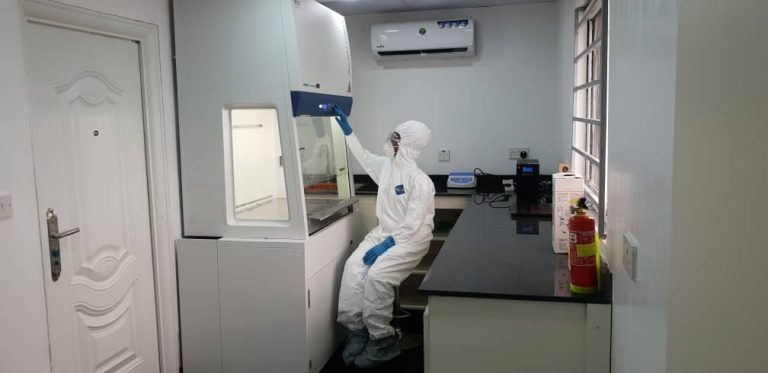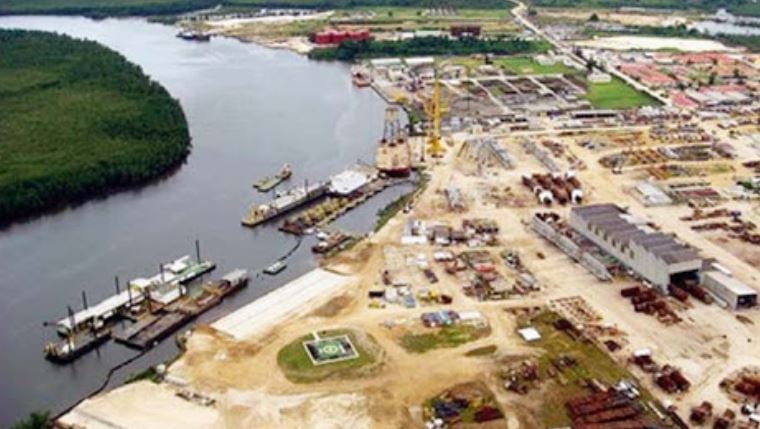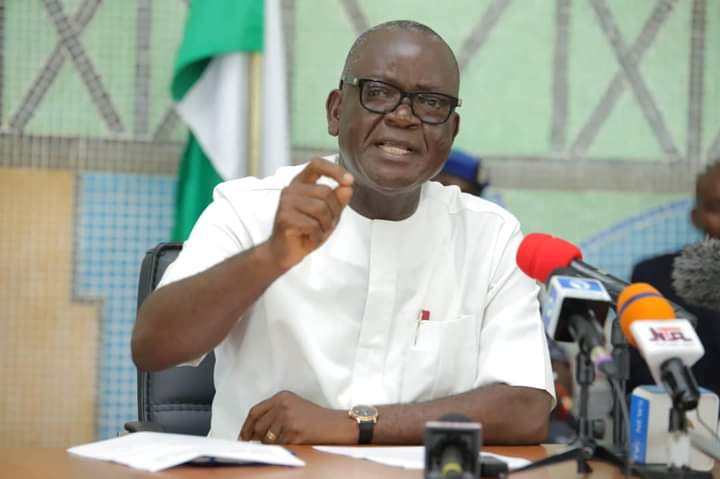Photo: NCDC
Three hundred and forty million naira. That is all that Nigeria has set aside as federal funding to prepare for the next health crisis.
In the 2021 budget analysed by TheCable, only N4 million was allocated for epidemic preparedness, with the remaining funds scattered across various ministries, departments and agencies (MDAs).
Then, talk about priorities: The federal government allocated as much as N500 million to fund pilgrimages during the year — 47 percent more than its investment into readiness for the next health emergency.
With the country still reeling from the effects of the COVID-19 pandemic that has crushed human lives and crippled the economy, experts have continued to push for adequate health financing to prevent, detect and mitigate health emergencies.
Advertisement
Recently, Bill Gates, the co-chair of the Bill and Melinda Gates Foundation (BMGF), confirmed to TheCable that governments around the world, including Nigeria, need to start preparing for the next pandemic.
“What we do know is that we can’t afford to be caught flat‐footed again. The threat of the next pandemic will always be hanging over our heads—unless the world takes steps to prevent it,” Gates had said.
So, where does Nigeria stand?
Advertisement
N4M FOR EPIDEMIC PREPAREDNESS AND THE ANNUAL RITUAL
A review of the 2021 budget shows that only one percent of all the allocations for projects relating to epidemic preparedness was identified as a clear line item in the budget, with some of the other provisions identified in cumbersome and unspecified projects.
The N4,047,000 allocation domiciled under the federal ministry of health was budgeted for ”epidemic preparedness, capacity development on COVID-19, Lassa Fever and Ebola”.
The implication is that unlike budget provisions with specific line items, these other projects cannot be easily monitored especially as they are regular features in the annual budgets studied by TheCable.
Advertisement
Also, of all the eight provisions, only one — the development of epidemic intelligence system using geospatial technology — is identified as a new project.
| S/N | PROVISIONS RELATED TO EPIDEMIC PREPAREDNESS IN 2021 BUDGET | ALLOCATION |
| 1 | Development of epidemic intelligence system using geospatial technology in collaboration with NCDC | N4m |
| 2 | Epidemic preparedness, capacity development on COVID-19, Lassa Fever and Ebola | N4m |
| 3 | Establishing an emergency outbreak response team and stockpile of response commodities | N64.7m |
| 4 | Provision of two mini-vans to convey outbreak response teams to outbreak location | N89m |
| 5 | Digitalising Integrated Disease Surveillance And Response (IDSR) towards achieving International Health Regulation (IHR) core capacity and emergency response | N53.4m |
| 6 | Training and capacity building in emergency response and outbreak management for state rapid response teams | N32.3m |
| 7 | Restocking of essentials detection and response commodities for viral haemorrhage fever and other public health priority disease in 36 states and FCT | N28.3m |
| 8 | Equipping the headquarters on NCDC with communication and response infrastructure to achieve a 24/7 operational readiness for outbreak detection and response | N64.7m |
| TOTAL | N340.4m
|
NCDC DG SAYS NIGERIA NOT READY FOR NEXT HEALTH CRISIS
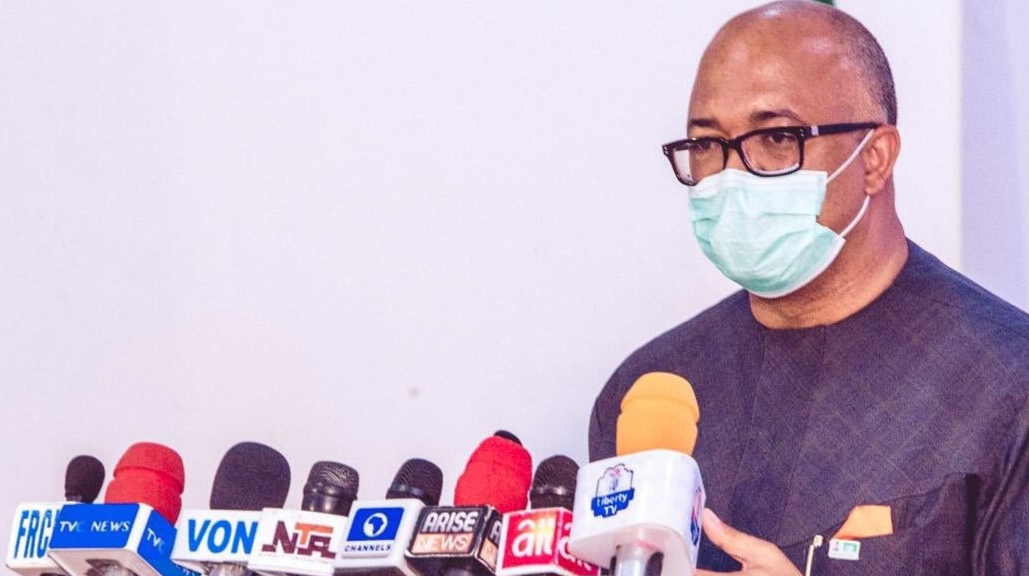
In an interview with TheCable, Chikwe Ihekweazu, director-general of the Nigeria Centre for Disease Control (NCDC), admitted that Nigeria is not ready for the next health crisis, but that it is never too late to begin to make the necessary investment.
Advertisement
“I don’t think we are ready for the next health crisis, but really our readiness depends on the decisions that we make today. So, often, health security is a bit like an insurance policy. It is something that many people don’t really want to invest in,” he told TheCable.
“Remember, big outbreaks don’t have to happen. What prevents big outbreaks from happening is when small clusters of cases are detected, the response happens immediately. Keeping it local and preventing cases from spreading outside that local area.”
Advertisement
He added that while the NCDC is committed to supporting states with the capabilities to contain disease outbreaks and prevent them from spreading, “we will not be able to do that if we don’t build that capacity sufficiently”.
“At the moment, yes, I think we have built a lot of capacity but do we have enough? No. We have to keep building for many more years to have the capacity in Nigeria to really be confident that we can detect small clusters of cases, contain them wherever they are and prevent them from becoming a large outbreak,” Chikwe said.
Advertisement
THE UGANDA EXAMPLE: DEPLOYING $18 MILLION TO SAVE $1 BILLION
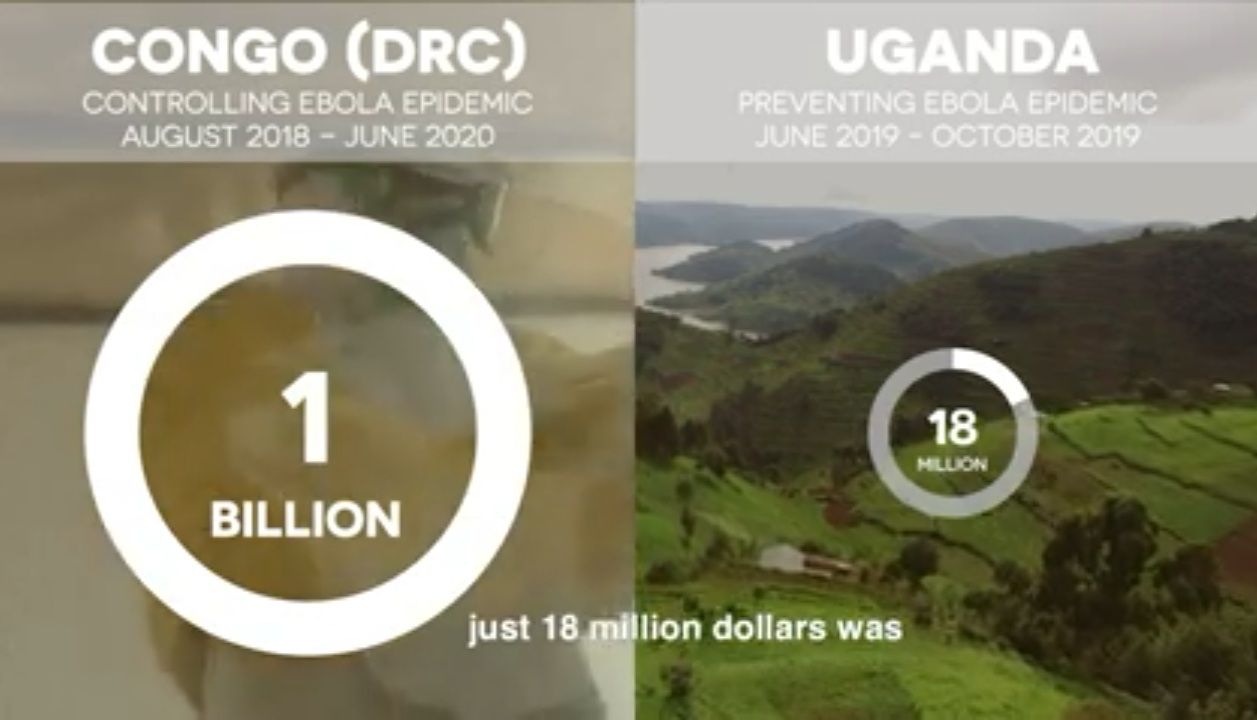
Advertisement
According to Tedros Adhanom Ghebreyesus, director-general of the World Health Organisation (WHO), the world has operated on “a cycle of panic and neglect” for too long, spending more in panic mode rather than on preparedness.
On the International Day for Epidemic Preparedness, he said: “We must learn from the lessons the pandemic is teaching us. First, all countries must invest in preparedness capacities. Strong primary healthcare is especially important as the foundation of universal health coverage and as the eyes and ears of every health system.
“Second, true preparedness is not just a job for the health sector. It requires an all-of-government and all-of-society approach. Furthermore, research and development aiming at discovery, development, and delivery of key tools that will slow and prevent pandemics are critical.”
A case in point is Uganda which has been widely commended on how it got ready to respond effectively to the Ebola outbreak.
The WHO estimates than over $1 billion was spent trying to stop the Ebola outbreak in the Democratic Republic of Congo (DRC).
By comparison, Uganda spent just $18 million on preparedness, making it ready to respond when it recorded its first case of the Ebola virus.
‘FG, OTHER PARTNERS MUST BE COMMENDED BUT STILL A LONG WAY TO GO’
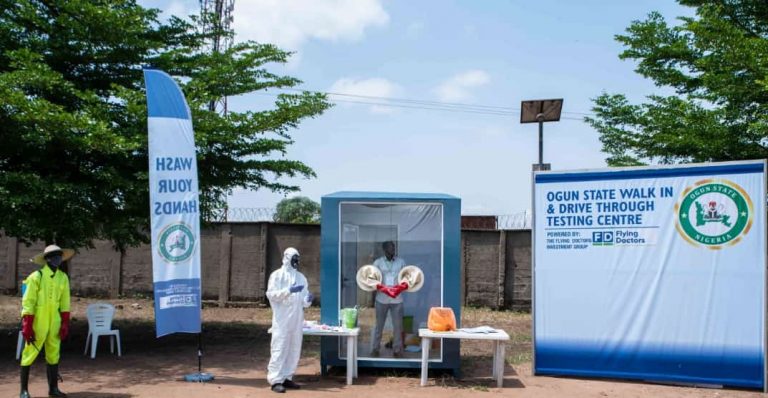
In October 2018, the Nigeria Health Watch launched the #PreventEpidemicsNaija project through which it has sustained advocacy for better funding for epidemic preparedness in Nigeria. More than two years down the line, the essence of the project has dawned on many Nigerians amid the struggle to get through the coronavirus pandemic.
While there is still a long way to go in terms of federal funding for epidemic preparedness, some experts who spoke to TheCable said the Buhari administration and other stakeholders must be commended for the progress made so far.
They cited the 75 percent increase in the Nigeria Centre for Disease Control (NCDC) budget, creation of specific line item for epidemic preparedness (unlike in the past) as well as provision of funding to adequately respond to the coronavirus pandemic and build sustainable health infrastructure as some of the achievements recorded.
In an interview with TheCable, Emmanuel Alhassan, the Nigeria coordinator, Prevent Epidemics, Global Health Advocacy Incubator, also recognised the efforts of the national assembly and the civil society organisations in this regard but added that “we can always do better”.
“We need to look at the health systems all the way to the primary healthcare level. The response to epidemics will be better when we first ensure we really deal with COVID-19 in whatever variant and not to go to sleep,” he said.
“We need to start preparing for whatever epidemic because it costs significantly lower to prepare and have your systems in place in terms of the system for preventing, detecting, response and control put in place.
“In terms of funding, we still have quite a long way to go and we still need to do better in spite of the limited resources but the government really needs to prioritise health and they need also to prioritise funding for epidemic preparedness.”
In addition to increased budgetary allocation to finance epidemic preparedness, International Working Group on Financing Preparedness advised that the government must also mobilise development assistance while the private sector should be included “across the entire preparedness planning process, and its expertise leveraged in carrying out planning activities”.
Add a comment

